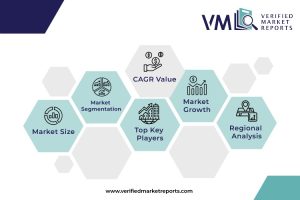What are biologics?
Biologics are medical products derived from living organisms. They can include vaccines, blood components, gene therapies, tissues, and proteins.
What are biosimilars?
Biosimilars are biological products that are highly similar to an already approved biological product, known as a reference product.
What is the current size of the global biologics market?
The global biologics market was valued at $291.84 billion in 2020 and is projected to reach $505.82 billion by 2027.
What is driving the growth of the biologics market?
The increasing prevalence of chronic diseases, technological advancements in biologics manufacturing, and the growing demand for personalized medicine are driving the growth of the biologics market.
What is the market size of biosimilars?
The global biosimilars market was valued at $5.95 billion in 2020 and is expected to reach $36.02 billion by 2027.
What are the key factors influencing the biosimilars market?
The patent expiration of biologics, cost-effectiveness of biosimilars, and increasing demand for affordable biologics are the key factors influencing the biosimilars market.
Which region has the largest market share in the biologics market?
North America currently has the largest market share in the global biologics market, followed by Europe and Asia Pacific.
How is the competitive landscape of the biologics and biosimilars market?
The market is highly competitive, with key players focusing on strategic partnerships, mergers, and acquisitions to expand their market presence.
What are the challenges faced by the biologics and biosimilars market?
Regulatory complexities, high manufacturing costs, and the risk of immunogenicity are some of the challenges faced by the biologics and biosimilars market.
What is the projected growth rate of the biologics and biosimilars market?
The biologics market is expected to grow at a CAGR of 7.6% from 2021 to 2027, while the biosimilars market is projected to grow at a CAGR of 35.7% during the same period.
What are the opportunities for investment in the biologics and biosimilars market?
Investment opportunities exist in biosimilars development, biologics manufacturing technologies, and market expansion in emerging economies.
What are the key trends shaping the biologics and biosimilars market?
The use of advanced analytics in biologics development, the rise of personalized medicine, and the increasing adoption of biosimilars are some of the key trends shaping the market.
How does the regulatory landscape impact the biologics and biosimilars market?
Stringent regulations for biologics approval and the evolving biosimilars regulatory framework significantly impact market dynamics and product launches.
What is the market outlook for biologics and biosimilars?
The market outlook is positive, with increasing R&D activities, new product launches, and expanding indications for existing biologics and biosimilars.
What is the role of healthcare policies in shaping the biologics and biosimilars market?
National reimbursement policies, biosimilar substitution laws, and government support for biologics access impact market growth and product uptake.
What are the growth prospects for monoclonal antibody biosimilars?
Monoclonal antibody biosimilars offer significant growth prospects, driven by their potential to address unmet medical needs and reduce healthcare costs.
How does the COVID-19 pandemic impact the biologics and biosimilars market?
The pandemic has accelerated the adoption of biologics and biosimilars, with increased focus on vaccine development, therapeutic antibodies, and immune-modulating biologics.
What are the market dynamics for orphan drug biologics and biosimilars?
The orphan drug segment is witnessing significant growth, driven by favorable regulatory incentives, higher pricing flexibility, and increasing focus on rare diseases.
What are the key success factors for companies in the biologics and biosimilars market?
Strategic collaborations, robust supply chain management, and strong regulatory compliance are key success factors for companies in the biologics and biosimilars market.

